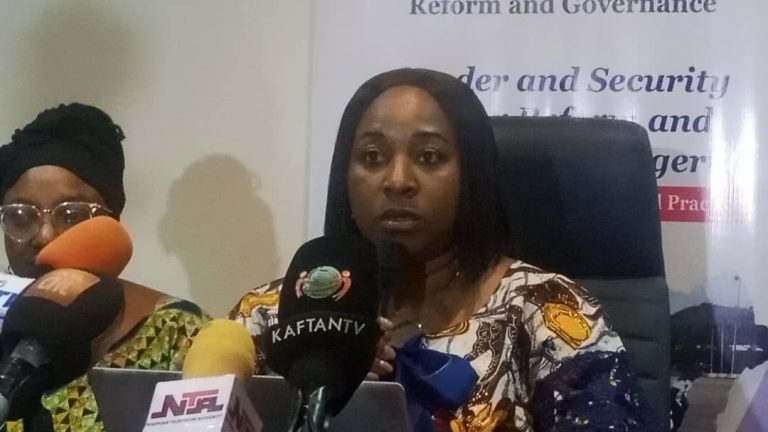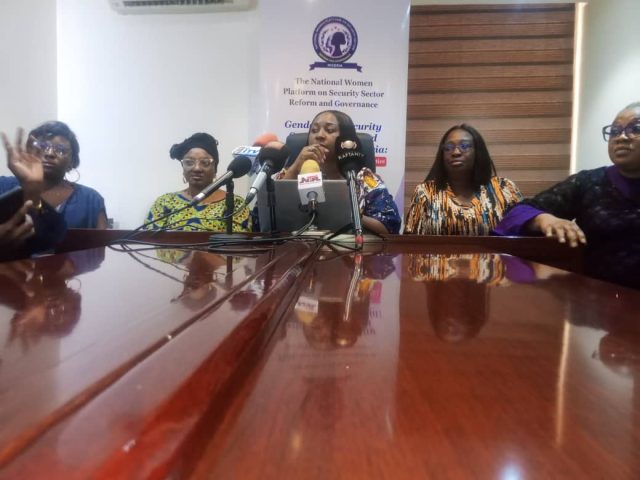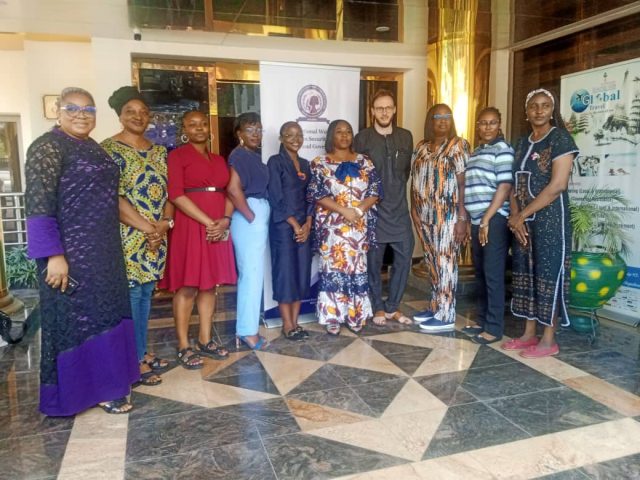From David Onuoja, Abuja
The National Women’s Platform on Security Sector Reform and Governance (NWP-SSR/G), has set the ball rolling by training about 300 Women through the promotion of Women’s inclusiveness in the Security Sector Reform in Nigeria through Advocacy, Research, and collaboration.

The training which took place across Nigeria, draw women from the Defence and Security Sector as well as the Civil Society benefitting from the bespoke capacity building.
Speaking to Journalists in Abuja on Friday during a press conference, the leader of the group, Associate Professor, Plangsat Dayil, who is the National Focal Person, said the group’s mission is to ensure that women’s voices are heard and their needs addressed in all aspects of security sector reform and governance in Nigeria and other partnering Countries.

She said, Since 2019, Friedrich Ebert Stiftung has been implementing the “Security for All” project, supported by the European Union Delegation in Dakar.
The project she added, has led to the establishment of a Regional Women’s Platform on Security Sector and Governance and the Civil Military Relations Group. This initiative aims to enhance Women’s roles in the Security Sector and inclusivity practices in Nigeria and to also build partnerships across Cameroon, Mali, and Senegal.
One of the aims also, is to contribute to actions and institutions that ensure security services at local, national, and regional levels are more accountable, responsive, and equitable to the security needs of women.
The group explained that its focuses is on several key areas such as, Civil-Military Relations, Climate change and gender Open Governance and Anti-corruption Resolution of Farmers and Herders’ Conflict Governance and Development Reform Issues Security/Justice Sector Reforms and Prisons/Correction Issues.
To make Women in the Security Sector safer she said, “the National Women’s Platform on Security Sector Reform and Governance is dedicated to amplifying the voices and perspectives of women in shaping the security sector for a safer, more inclusive society. Through advocacy, research, and collaboration, the platform strives to ensure that women’s concerns, experiences, and expertise are central to decision-making processes.
On the Gender-Inclusive Policies, Dayil advocated for policies that prioritise gender equality and address the specific needs and vulnerabilities of women within the security sector.
According to the group, “we want to empower women with the knowledge, skills, and resources necessary to actively participate in security sector reform initiatives.
“Promoting transparency and accountability mechanisms within the security sector to prevent gender-based violence, discrimination, and abuse of power.
“Undertake research at the intersection of gender and security to inform policy and practice that promote the security of women and marginalised groups.
“Engaging with local communities to foster dialogue, build trust, and ensure that security policies and practices are responsive to the needs of all citizens, particularly women and marginalised groups”, she said.
Also to addressing concern about harassment and abuse of women by security personnel, particularly in correctional facilities, Dayil assured that gender sensitivity and accountability are integral to the platform’s training programs.






